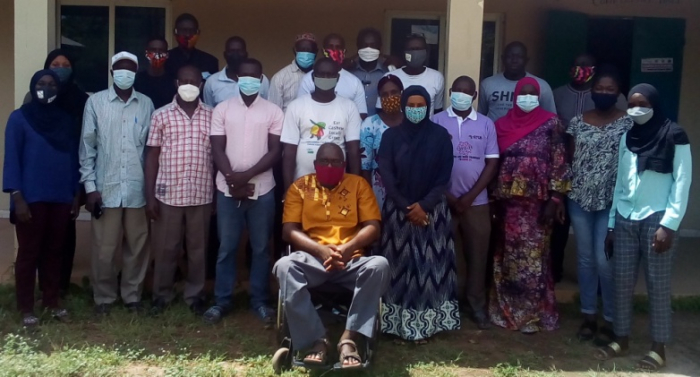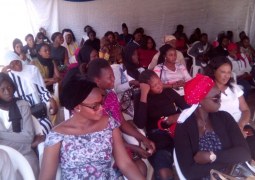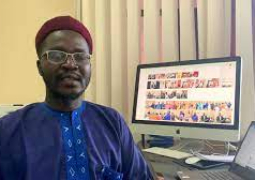
The CMS review, which commenced on Sunday, would be followed by the development of tool kits to administer the strategy.
Malang N. Fofana, program manager responsible for programmes at the National Nutrition Agency, informed that the project has three components.
The strategy, he went on, seeks to help improve community participation, improve on ownership, sustainability as well as help better promote the community’s engagement to take up interventions that will help uplift the poverty status of extreme poor.
“The 6-day review will be followed by another 6-day development of tool kits in a bid to operationalise the strategy, which will outline what needs to be done, how it should be done and at what time.”
The Nafa program is under the Social Safety Net project and jointly implemented by Work Bank and government of The Gambia.
Mr. Fofana, who is also the project facilitator for The Gambia Safety Net Project added that the first component tries to look at improving coordinated mechanisms for safety net in the country.
He indicated that there are so many different players in the country trying to help the poor and vulnerable households, but their interventions and activities are not coordinated with a lot of fragmentation.
“Sometimes there are duplication and gaps in some areas. There is need for us as a country to have a mechanism that will help us coordinate and know who is doing what, at where and who is targeted.”
The project, he added, is also supporting two very important elements which are, the social registry that will have data on all households in the country, their status and also classify them as well-off, wealthy, poor, or extremely poor and where they live.
Fofana also said that it will also have data on the status of each household member in the country.
“For example if there are very old people and physically challenged in case people want to intervene to support the poor and vulnerable, they go into that data base and tease out what you want to take based on your criteria.”
The second key element, he noted, is the establishment of an improved Monitoring and Evaluation Strategy and framework that will help them capture all interventions geared towards supporting the poor and vulnerable and to know its impact on the country.
Fofana explained further that the second component of the project is the Nafa Program cash transfer where they are targeting 15, 600 extremely vulnerable households, who were selected from 20 poorest districts in the country.
These districts, he informed, were selected based on the last integrated households survey data 2015-2016 which is use to look at the poverty rate and gaps.
“The project is trying to help lift those extremely poor to a level where they can contribute meaningfully to the socio-economic development of the country as well as build their resilience to get them out of that extreme poverty status”, he highlighted.
“The Social and Behavioral Change Communication (SBCC) aspect is going to ensure they inform, educate and communicate with people to change for desirable behaviors.” he added.
He observed that behavioral change is very important in not only improving their welfare, but also sustaining whatever intervention they are doing targeting communities and the poor.
According to him, for the SBCC to have an impact to change behaviors, there must be a strong foundation which is the community mobilisation strategy.
At the end of the drafting of the strategy, he said, they will share it with a wider audience to gauge their views on the strategy to have the final document to be used as a working document.
Ousman Dem, Social and Behavioral Change Communication Principal Program Officer at NaNA said the strategy has multiple benefits as it will give them a sense of direction when implementing the project.
He pointed out that the money given to people is also accompanied with Social and Behavioral Change Communication (SBCC) activities.
Dem maintained that they do not just monitor and stop there, but also coached and mentored them on how to establish businesses and help them build sustainable plans so that even ‘if the project ends they can use that sustainability plan to continue and even expand their businesses’.





